An insightful book by Giancarlo Elia Valori, being published by Rubbettino editor, useful to understand the origin and likely evolution of the most important international events of our time, as well as the opportunities and challenges posed by artificial intelligence, the space race and other technological innovations.
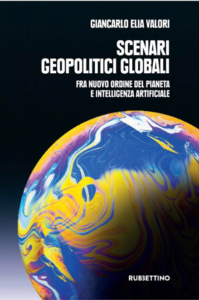 The book, divided into five broad chapters, masterfully analyzes all the major issues that influence today’s global landscapes. The author, Giancarlo Elia Valori, is Honorable de l’Académie des Sciences de l’Institut de France, Honorary Professor at the Peking University, President of the International World Group and Global Strategic Business. The book has two distinguished prefaces: one by Lamberto Dini, former Italian Prime Minister, and the other by Oliviero Diliberto, former Italian Justice Minister, Jurist and Dean of the Faculty of Law at La Sapienza University in Rome.
The book, divided into five broad chapters, masterfully analyzes all the major issues that influence today’s global landscapes. The author, Giancarlo Elia Valori, is Honorable de l’Académie des Sciences de l’Institut de France, Honorary Professor at the Peking University, President of the International World Group and Global Strategic Business. The book has two distinguished prefaces: one by Lamberto Dini, former Italian Prime Minister, and the other by Oliviero Diliberto, former Italian Justice Minister, Jurist and Dean of the Faculty of Law at La Sapienza University in Rome.
1) GEOPOLITICAL SCENARIOS
The Russian-Ukrainian war
The first chapter focuses on the geopolitical landscapes concerning the Russian-Ukrainian war, Africa and the new world order between Washington and Beijing, Europe, the West and the European Union, Iran, the status and role of the BRICS countries in global governance, the redemption of developing countries through global dialogue, and the Geopolitics of Straits and Oil.
With reference to the Russian-Ukrainian war, Giancarlo Elia Valori dwells on the origins of the conflict in 2010-2014, the geopolitical implications of the war, the European Union’s bumbling role, and the Jewish Holocaust in Ukraine.
Both Brussels and Moscow view Ukraine as an important element of their geopolitical projects, and the Ukrainian crisis was preceded by a competition between the European Union and Russia over Ukraine’s geo-economic orientation. At the end of February 2014, however, Ukraine ‘swung’ too strongly and abruptly to the West and lost its strategic balance that had held it up for almost a quarter of a century. Russia viewed Western support for regime change in Kiev as a betrayal, and acted in defense of its vital interests: preventing Ukraine from joining NATO and, ideally, reorienting it in favor of the Eurasian integration project, the key element of which is the reunification of the so-called Russian world, while the West considered the reaction of Russia as an aggression by a superpower against a neighboring state.
Furthermore, the author argues that from Russia’s point of view, Ukraine has been a weak, fragile and often unreliable partner for twenty years, even creating problems for the transit of products of the Russian energy giant Gazprom to Europe. In addition, Ukraine has begun to transform over time into a state led by a coalition of pro-Western elites and anti-Russian pro-fascist and anti-Semitic nationalists. This change, according to the Kremlin, was fraught with two threats: the oppression of Russian language, culture and identity in Ukraine and the country’s membership in NATO. Hence the decision to react.
Giancarlo Elia Valori points out that the Ukraine crisis has opened a period of Russian-US rivalry, even confrontation, reminiscent of the Great Game of the 19th century, the struggle for supremacy between the Russian and British empires.
The war in Ukraine changed the status quo ante post-Cold War and opened a period of Russian-Western rivalry and confrontation, which is difficult to reconcile. However, according to the author, the Ukrainian crisis is laden with global consequences, but in itself does not have central significance for the international system and does not become an organizing principle of world politics and the foreign policy of the major global players.
The author also dwells–based on his own memoirs and Israeli sources–on the bloody history of the extermination of Jews in Ukraine and the deep anti-Semitism rooted in this country, starting from the Ukrainians of the Middle Ages to today’s SS Ukrainian worshippers. The author recalls how many Ukrainians volunteered to the Nazis to exterminate Jews, citing the Babi Yar Gorge massacre, where some 50,000 Jews were killed by Ukrainian collaborators in the service of the Nazi Third Reich. At present, 900,000 victims in Ukraine of the Holocaust still await justice, Ukraine never conducted a single investigation of local Nazi war criminals.
Africa and the new world order between Washington and Beijing
With reference to Africa and the new world order between Washington and Beijing, the author points out how the United States of America fails to strengthen relations with Africa by fomenting anti-Chinese sentiments, as is the case within the European political classes, considered by the author to be amorphous following the White House. The anti-Chinese rhetoric has long conditioned the foreign policy of the United States of America, culminating in the passage by Congress in Washington of the China Competition Act, which is essentially an effort to counter Beijing’s growing importance in global affairs, including in Africa. So, the U.S. administration seems more concerned about undermining the growing influence of the People’s Republic of China in Africa than advancing African interests.
On the contrary, according to the author, China and Africa have long forged a solid partnership, bringing tangible benefits to the African continent that cannot be erased by trite rhetoric about the Chinese threat. The People’s Republic of China is now an important player for Africa’s economic recovery and growth, including in trade, investment, finance and social development.
Europe, the West and the European Union
Concerning the European continent, the author also delves into issues related to the disintegration of Yugoslavia, with its trail of bloody wars, and dangerous tensions still persisting. In particular, he dwells on Serbia, which, according to the author, is a troublesome and embarrassing element for the European Union to set aside. Paradoxically, however, the Serbian leadership nonetheless consciously supports concrete initiatives to integrate with the European Union. But an extremely insidious situation cannot be ruled out, the author notes, if a fairly sincere attempt at European integration on the Serbian side will be thwarted by a Croatian (or other) veto and stimulate the growth of euroscepticism in the country.
Giancarlo Elia Valori makes an interesting distinction between the concept of Westernization, as it is understood today, compared to the historical West. Now, according to the author, “Westernization” means only the exaltation of technocracy, markets and commerce in the liberal-bourgeois meaning of the term, the nullification of the concept of independent politics with the homogenization of the Parties to a single thought.
Parties are now distinguished no longer by ideological charge but by the media power of the leaders, with the annihilation of any metaphysical value that is tied to political, religious, national, humanitarian ideals. Men and events are valued only as functional to economic profit, to money, to the gain of a few over an amorphous mass, devoid of feelings and homogenized to the capitalist system of production.
The author also explains the process that fostered the emergence of the current concept of Westernization. After World War II, the Western Hemisphere has become an amorphous spatial structure, exactly like those that Europeans had agreed upon in dividing up land during the colonial era. From colonialists, Europeans became colonized, with a single border separating NATO-controlled countries from others controlled by the Warsaw Pact. The European West put itself under the protection of the United States, which pledged to defend it from the “bad guys,” having in return control of markets, the production system and domestic policies.
Essentially, the New West, that is, the United States of America, had uprooted Europe-the Old West-from its meta-physical-historical location, removing it as the center of the world. The West, with all that the concept implies morally, civilly and politically, was not eliminated or annihilated, nor even dethroned, but merely displaced, creating “Westernization,” which, however, has nothing to do with the West and its spiritual and historical traditions.
When asked if the European Union will succeed in becoming a federated continent on the U.S. model, the author says no! The U.S. model was born out of a unitary project of colonies subservient to a vexatious mother country-England. The U.S. experience began without a history of its own behind it. Europe, on the other hand, has a Common History based on Roman law and Christianity. From there came ultra millennial histories that gave rise to as many nations, with rivalries and hatreds, almost as many as the current European states.
As long as the so-called European Union has no military independence and is under the dictates of third-party foreign policies, and its own self-referential leaderships are not elected by the peoples, the author says, the role it can play in future geopolitical arrangements will be zero, while at the same time its own arms merchants will get rich.
Politically, economically and militarily, the European continent has again become divided: Russia in the east, NATO and the EU in the west with Ukraine as the target, and the countries in between-Belarus, Moldova and the Caucasus states-have become a zone of potential conflict. A war between the great powers in Europe, which seemed to have remained on the pages of the history books, has once again become, though unlikely (due to atomic issues), possible. In the meantime, the equivalent of military action has been economic sanctions and information warfare that has come full circle.
The abrupt turn in relations between Russia and the West came after twenty-five years of slow efforts on both sides to build an inclusive relationship. But despite the efforts of the last head of the Communist Party of the Soviet Union and the first three Russian presidents, the Western leadership never actually showed any real interest in Russian integration. They had reasons to avoid it.
Russia is too big for such an undertaking, especially in terms of the amount of economic assistance needed to bring it closer to the level of Western Europe, and despite the loss of superpower status, it is too independent.
Moreover, Russia possesses a huge nuclear arsenal and an elite that thinks in terms of great power, and struggles for equality with the United States of America. For Washington, Russia would be an ally too stubborn and uncomfortable. Finally, the West has no external threat requiring Russia to join the U.S.-led alliance system, as the threat was believed to come from Russia itself, even before the Ukrainian-Russian war.
Instead of integrating Russia into its system of international structures, the West sought to direct it to create those political, economic and social institutions that would bring it closer to the West in terms of competitive qualities. Western governments supported market-oriented programs in Russia, hoping that it would soon become part of a society subjugated to hetero directed globalization.
The author argues that there has been no attempt to isolate Russia by the West. However, at the same time, recognition of Russia as an equal partner of the United States of America and, in the author’s words, its “EU bandwagon” has been ruled out. In the West, the Russian Federation is – indeed! – was seen as a smaller international actor whose influence and importance were waning. There was no question of granting Russia special privileges in the form of a sphere of influence, especially over the states part of the former Soviet Union.
In essence, it was offered to Russia to become a minor and lesser partner of the United States of America, the EU and NATO.
Russia, on the other hand, saw NATO expansion as a violation of obligations by the West, meanwhile the Western governments considered Russia’s protests in this regard as evidence of Moscow’s imperial ambitions and even its claims on Central and Eastern Europe.
We have reached this stage of the West-Russia confrontation because of reasons rooted in recent history that are often “forgotten” for the convenience of one side, the author notes.
Iran
The author focuses on the significant developments in Iran’s economy and its remarkable advances in science and technological innovation. The unilateral sanctions and restrictions imposed by some Western countries on Iran have essentially hurt the Western economy. European countries – although the author points out that it is ridiculous to express the term “Europe” as a single will – have a desire to prevent their companies from suffering from the sanctions imposed by Washington out of bilateral spitefulness that is rooted in contemporary history. The main problem is the extraterritorial application of U.S. sanctions. So in addition to Iranian companies, the same European companies that are already working with Iran may themselves become targets of U.S. sanctions pressure. So Europe should defend its interests by making sure that U.S. sanctions against Iran do not affect European companies.
The author also dwells on the millennia-old history and richness of Persian art and architecture, emphasizing the soft power role of culture and the need to strengthen cultural exchanges with the Islamic Republic of Iran, also in order to foster a common process of modernization and advancement, which will be surely beneficial to all participating countries.
The status and role of the BRICS countries in the global governance
In the author’s definition, BRICS unites the efforts of countries seeking to overcome Western imperialist-economic hegemony on the path of strengthening economic integration and in the development of economic activities.
Many compare BRICS to NATO or the UN, which, according to the author, is incorrect: this organization has no headquarters, has nothing to do with military arrangements, and deals mainly with economic issues. Participating countries respect equality and maintain mutual respect, and they have global goals that seek to improve economic relations in the world.
Although BRICS countries differ in terms of wealth, social development and science, they share high rates of economic development. BRICS has gradually transformed into a strategic community in many areas, the basis of which is political activity and security fundamentals, economic and financial sectors, cultural leadership and cooperation in the humanitarian sphere. BRICS countries are also committed to improving the lives of each of their citizens.
In essence, BRICS is emerging as a strong bloc with valuable authoritativeness. With the participating countries at the forefront in many areas, the United States of America could in comparison lose its role as the center of technology, production and consumption.
Redeeming developing countries through global, non-sectoralized dialogue
According to Giancarlo Elia Valori, it is imperative to support developing countries to give new impetus for maintaining world peace and promoting common and sustainable development. Development is a timeless issue for humanity and the foundation of overall security. Global development issues help to establish an inclusive international landscape as they would achieve a more just and equitable system of total governance than the one we have been experiencing for the past two decades, with aggressive alliances that only provoke and promote decentralized wars.
The author emphasizes the idea of community with a shared future, as the effective recipe for overcoming the phenomenon of global “fragmentation” in today’s world.
But the word “global” can have different meanings. Today, the author argues, the most significant difference is between the Chinese international perspective and the Western liberal perspective. Socialism itself has ideological, historical and traditional integration content and is dedicated to the pursuit of cooperation and liberation of all peoples according to five Bandung Principles (1955), on which China has always consistently based its foreign policy: mutual respect for sovereignty and territorial integrity; mutual non-aggression; mutual non-interference in each other’s internal affairs; equality and mutual benefit; peaceful coexistence.
The liberal perspective, according to the author, on the other hand, pursues globalization on the surface, but in reality it is driven by Western liberal-capitalist countries in the service of their own interests and corporations. As a result, Western developed countries are becoming the real anti-globalization force.
Non-traditional global security issues such as food security resource scarcity, population demographic explosions, environmental pollution, prevention and control of infectious diseases, pandemics and transnational crimes, can only be solved with the agreement of all.
2) THE PLANET CHINA
An entire chapter of the book is devoted to China. It begins with an in-depth historical overview of the Chinese awakening, one of the central events in 20th-century history. The history of the Chinese Communist Party, and other political parties, is also explored in detail.
The author then turns to the concept of democracy according to Chinese characteristics. According to Giancarlo Elia Valori, the democratic system according to Chinese characteristics combines the basic principles of Marxism with the concrete reality of the People’s Republic, and is a practice implemented by the Chinese Communist Party since its founding. The author quotes Xi Jinping’s words, “Without democracy, there will be no socialism, no socialist modernization, and no great rejuvenation of the Chinese Nation.”
History and reality, the author points out, continue to show that the key to developing socialist democracy with Chinese characteristics is to ensure that the people are the masters of the country by adhering to an organic governmental unity.
As a socialist country, the author writes, in China all power belongs to the people , and the people exercise such a state power through the National People’s Congress (the Parliament).
People’s democracy according to the logic of the socialist system deals with all the attributes of society and the needs of the people. Within this institutional framework, democracy according to Chinese characteristics in the whole process protects the fundamentals of the people from the dimensions of time and space, content and form, entity and procedure, which are the sustainable development interests of and for society.
The whole process of people’s democracy is an inevitable requirement of the modernization path; and the modernization of the national government system and executive capacity is the strategic vision of the whole process of democracy.
Modernization is a process of multifaceted cooperation and common progress. The modernization of economic and social life, the modernization of politics and the spiritual rebirth of the citizen are three inseparable components.
People’s democracy in the whole process is one in which people participate jointly in national construction and social development; it is a democracy in which people’s aspirations and national development go in the same direction and not in opposite directions as is the case elsewhere, when the intentions of an X side clash in the face of the national interest.
Through democratic politics, there is a beneficial interaction between the progressive improvement of government apparatuses and the demands of the people. This is one of the goals of a modern socialist country: the strategic vision of democracy with Chinese characteristics in the whole process of political and institutional development.
According to the author The CCP and the ten years of Xi Jinping’s leadership have always adhered to the people-centered principle and oriented toward the citizens. All the lines, ideas and policies formulated by the Party fully promote democracy, pay attention to inquiry and research and adhere to the line of work of coming from the masses for the masses.
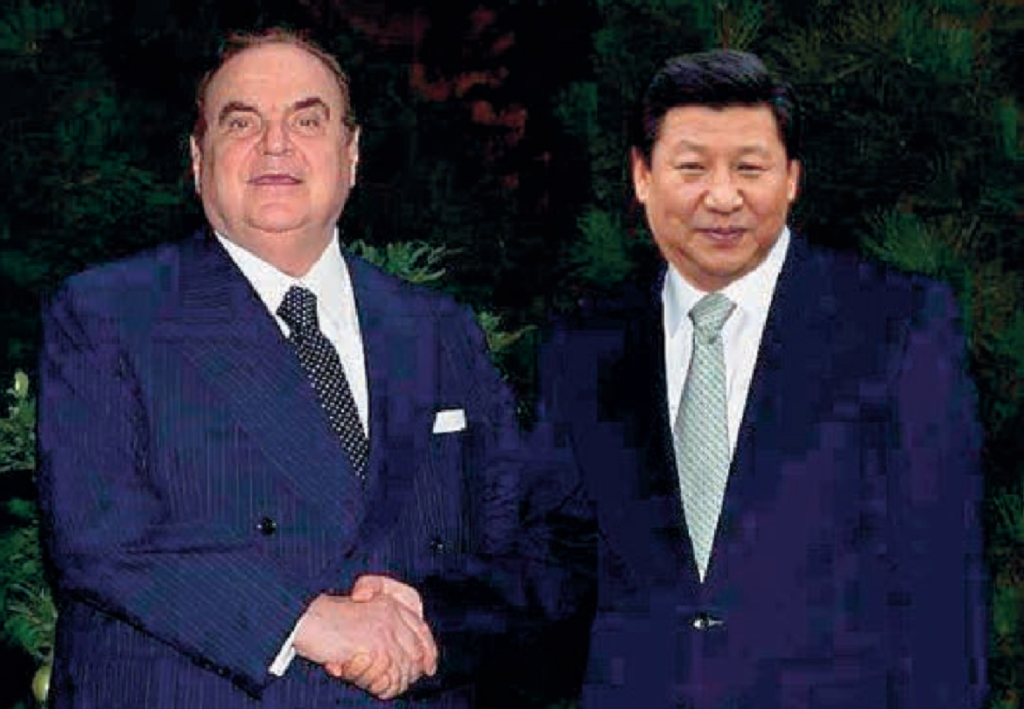
The essence of Chinese modernization is to seek satisfaction for the Chinese people and the rejuvenation of the Nation. The essential issue is to recover the “two hundred lost years” that resulted in the backwardness that the founders of the People’s Republic faced in 1949 after liberation. That is, over time a parallel process has been created between industrialization, computerization, urbanization and agricultural modernization.
Started formally in 2020, by 2035 modernization will aim to build a modern, stable and strong defense country and must be fully realized by 2050.
Chinese modernization is essentially the cure for a country with a huge population, based on a thorough synthesis of the experience and lessons of the practice and mistakes of modernizations in other countries of the world.
According to the author, now it is too early to say whether Chinese modernization will represent a new form of human civilization, but one thing is certain: it-unlike other modernizations-does not seek to impose itself on the world through violence, but seeks to improve its own country. Whether it will then be taken as an example by other Peoples and States only History will be able to tell us.
The author also focused on President Xi Jinping’s key role in fostering dialogue between the BRICS and developing countries, and in the accession of other countries to the BRICS group. The development of People’s Republic of China-Russia relations, which are currently at the best stage in the history of the two countries, is detailed. Chinese President Xi Jinping has praised Sino-Russian relations as a reliable pillar for the protection of international justice, meanwhile Russian President Vladimir Putin called Sino-Russian relations a true model of interstate cooperation in the 21st century and a significant factor of stability in the international arena.
Other points that are explored in depth are the great interplay of the People’s Republic of China and the U.S. United States of America in the Asian order, the economic war between the People’s Republic of China and the United States of America, the growing relationship between the People’s Republic of China and developing countries, and the importance of the Chinese Silk Road Initiative, including for Europe.
Today, according to the author, the most significant difference is between China’s international perspective and the Western liberal perspective.
3) THE PLANET UNITED STATES OF AMERICA
In the chapter Planet USA, the author focuses in detail on the history and significance of the century-old Monroe Doctrine between Washington and Asia. Today, the clashes between the PR of China and the United States of America in the Pacific waters are not new, but should be read in history as clashes of conflicting geopolitical visions, where, according to the author, the former appeal to international law, while the latter seek to tear it apart in the aftermath of the fall of the Soviet Union.
The author also dwells on the sanctions system and anti-Chinese maneuvers. In the opinion of Valori, the U.S takes advantage of its financial hegemony and technological power and imposes economic coercion on other countries in the name of protecting national security. The United States of America’s unilateral sanctions and long-range jurisdiction have severely undermined the sovereignty and security of other countries and severely affected their economic development and people’s welfare. Sanctions and long-arm jurisdiction also constitute a serious violation of international law and the basic norms of international relations.
The “rules-based international order” advocated by the United States of America is actually another version of power politics. This is an attempt to impose its own will and standards on others and to replace internationally commonly accepted rules with its own internal rules.
On the contrary, there is only one international system in the world, the one that has the United Nations Organization at its apex, and only one international order, the one upheld by international law. And there is only one set of rules: namely the basic rules that govern international relations supported by the purposes and principles of the United Nations Charter.
China-United States of America relations have reached an important crossroads. According to Valori, the United States of America should stop viewing this relationship through the lens of the Cold War; of the zero-sum mentality; and instead follow the three principles of mutual respect, peaceful coexistence and win-win cooperation. Only in this way can we begin to talk about peace.
The author also dwelt on the dysfunctions of democracy in the United States, and in the criticalities of its economic and social system, and on the racial issue, with the persistence of substantial discrimination against ethnic minorities.
Finally, in this chapter, Giancarlo Elia Valori also explores the thinking of Henry Kessinger, with whom he was bound by friendly relations. Among other points, recalling how Kissinger emphasized that: “History and practice have continually shown that neither the United States of America nor the People’s Republic of China can afford to treat the other as an adversary. If the two countries go to war, it will not bring any meaningful results to the two peoples.” Understanding and managing Washington-Beijing relations-particularly the reversal of the current difficult situation-requires broad-mindedness as well as historical and philosophical speculation. It is thus necessary for “both sides to show wisdom, work together and develop jointly. The two armies should strengthen communication and do their best for the development of bilateral relations to create positive results and safeguard world peace and stability.”
4) SCIENCE AND RESOURCES ON EARTH AND IN THE SKY
Chapter IV covers the new scientific discoveries and advances around the world, the expansion into space and future exploitation of asteroids, and the Moon, the progress of the People’s Republic of China in the space sector, the difficult issues regarding the exploitation of Asteroids and Meteorites, with reference to both technology and international law, and the current state of space rocket technology. In essence, it’s an extensive analysis of the developments and major advances being made in space exploration.The author states that in the not too distant future it will be possible to arrive at the exploitation, for the benefit of humanity, of the resources found in celestial bodies, particularly asteroids.
5) NEW WORLD ORDER AND ARTIFICIAL INTELLIGENCE
In the fifth chapter, the author focuses on the search for a new world economic order in which emerging forces carry more weight huge-scale economic changes have historically changed the international economic landscape and balance of power. There is a strong demand for reform of the traditional international economic order that was mainly formed in the era of the U.S.-Europe economic hegemony. Indeed, the economic influence of BRICS countries has formed an unprecedented radiating force, effectively promoting the development of the regional economy, particularly inducing a linkage effect among emerging market countries.
Reform and development are the main demands and gain consensus from all countries and regions of the world. According to the author, the international community should continue its efforts to promote the development of developing countries, build a fair and effective global partnership with shared responsibilities and benefits, and work together to achieve the Millennium Development Goals comprehensively.
The second point is to build a fair, equitable, inclusive and orderly international monetary and financial system, support global economic development and increase the voice and representation of emerging market countries and developing countries in the international monetary and financial system.
Finally, the author covers in detail all the different aspects of the complex issue of Artificial Intelligence. AI technology will bring advantages and benefits to society as a whole. But the rise of AI is also a cause for concern, as it is not a neutral tool and can be used maliciously, creating uncertainties and even falsifications of reality. Quoting the author, artificial intelligence is a complex technology with many potential pitfalls that must be paid close attention to, not always taking positive outcomes for granted. A successful artificial intelligence model should prioritize ethics from the outset, without second thoughts. In all industries and companies, artificial intelligence does not have the same value and use, but the one unifying factor that should go forward is a commitment to transparent and unbiased predictions.
Among other issues, the author wonders how developments in AI will influence relations between states. pointing out that AI will become the new focus of competition among the great powers, as was the case with the development of the nuclear weapon. It will be not only desirable but necessary, he says, to work from a common security point of view by establishing internationally shared norms.
With reference to its impact on geopolitical balances, the author argues that artificial intelligence affects changes in the world order from two aspects: structure and international norms. In terms of the international situation, artificial intelligence can influence the balance of power among countries in the economic and military fields, and it can be assumed that the capabilities of non-state actors will expand unprecedentedly and international competition around technology will become more intense.
In terms of international norms, artificial intelligence has the potential to change the form and principles of warfare and impact existing international laws and ethics.
The security and governance challenges posed by artificial intelligence technology are issues that need to be addressed by all of humanity. Countries should look at the problem from the perspective of building a community with a shared future for humanity and discuss the future of international artificial intelligence norms from the concept of common security.
Giancarlo Elia Valori – World-renowned manager and academic with a leading role in fostering dialogue and cooperation between countries. He is President of the International World Group, and Global Strategic Business, Advisor to the Chinese HNA Group, honorary Chairman of Huawei Italy, and of the Italian Delegation of the Abertis Foundation. He also holds the position of vice president of the Weizmann Institute in Paris, and he is a member of Ayan-Holding, the Advisory Board School of Business Administration College of Management in Israel, and of the Advisory Committee of the historical-technical Journal “Conservation Science in Cultural Heritage.”
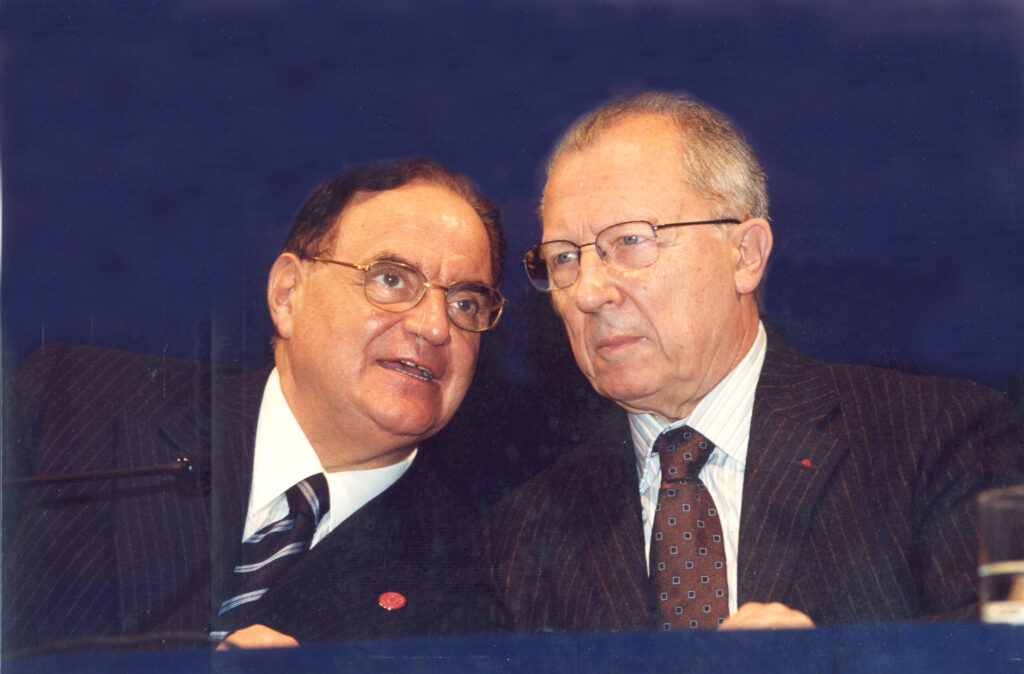
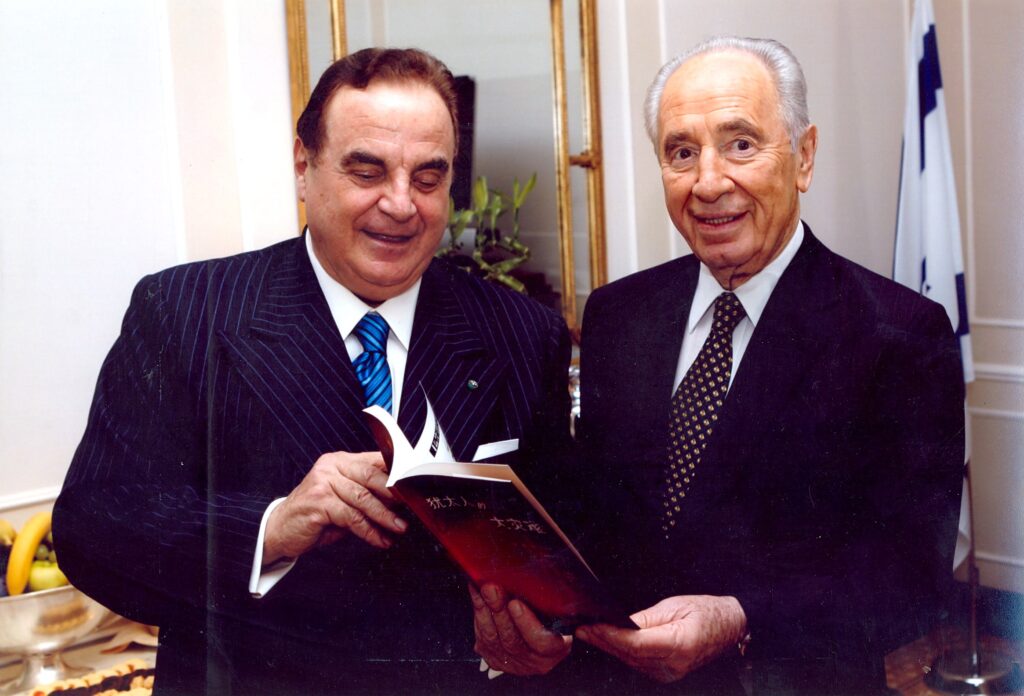
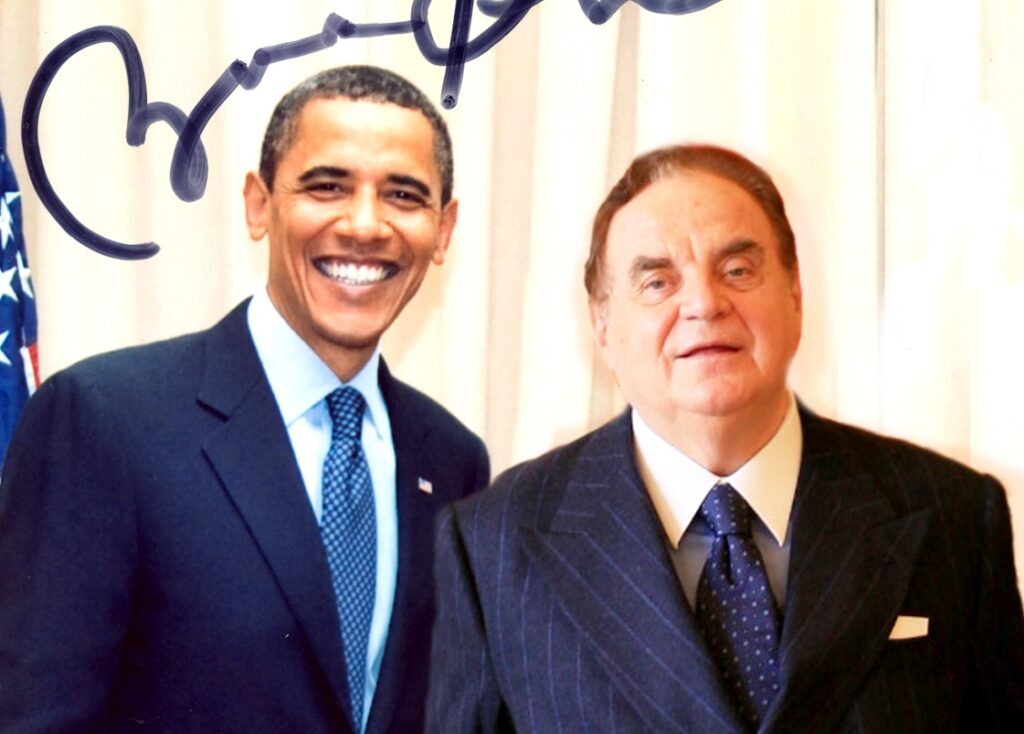
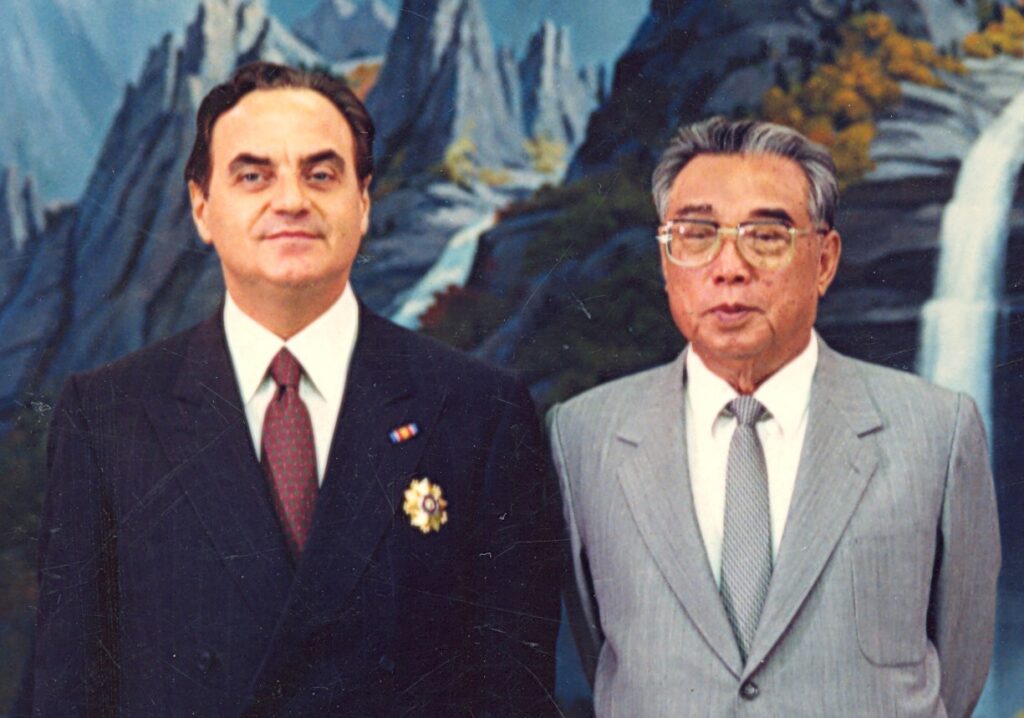
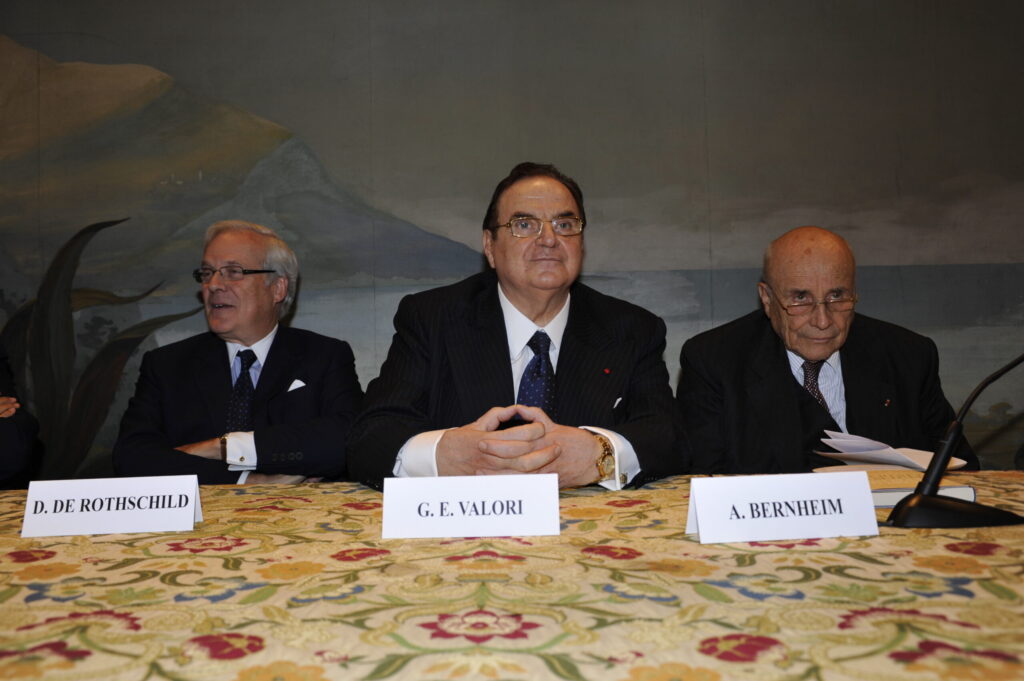
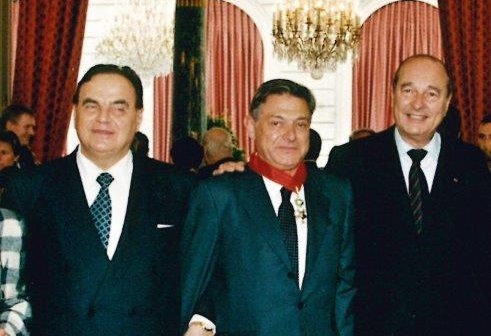
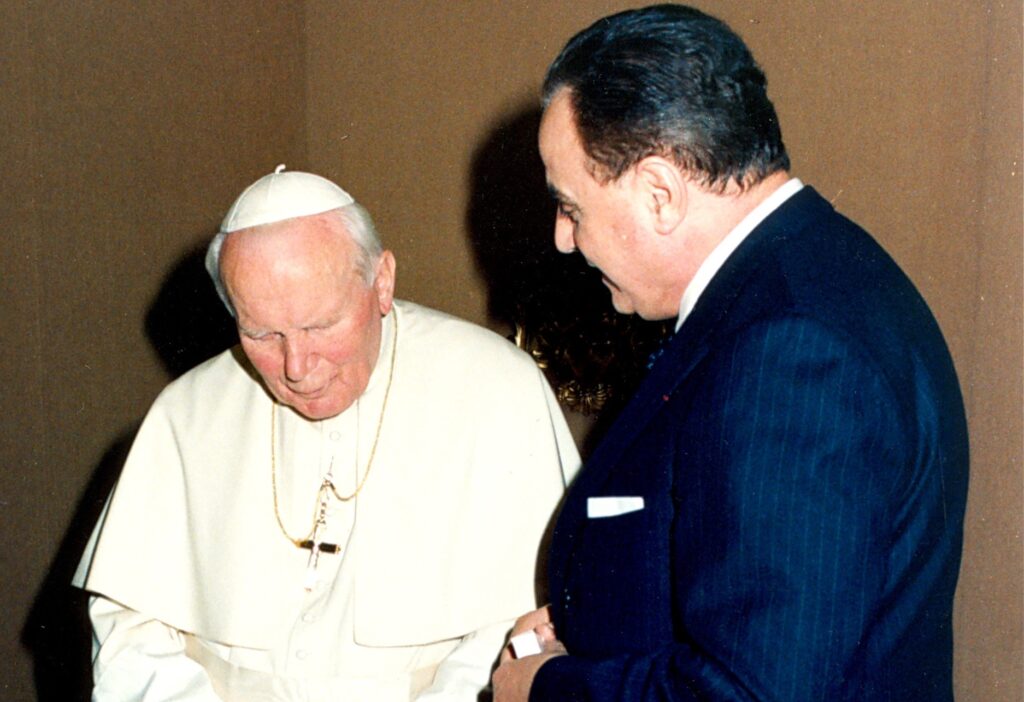
Giancarlo Elia Valori holds professorships in renowned universities, such as the Yeshiva University in New York, Hebrew University in Jerusalem and the Peking University in China. He has received numerous top honors, including that of Cavaliere di Gran Croce and Cavaliere del Lavoro al Merito of the Italian Republic, Cavaliere della Legion d’onore of the French Republic, Goodwill Ambassador of UNESCO, and Honorable of the Académie des Sciences de l’Institut de France.
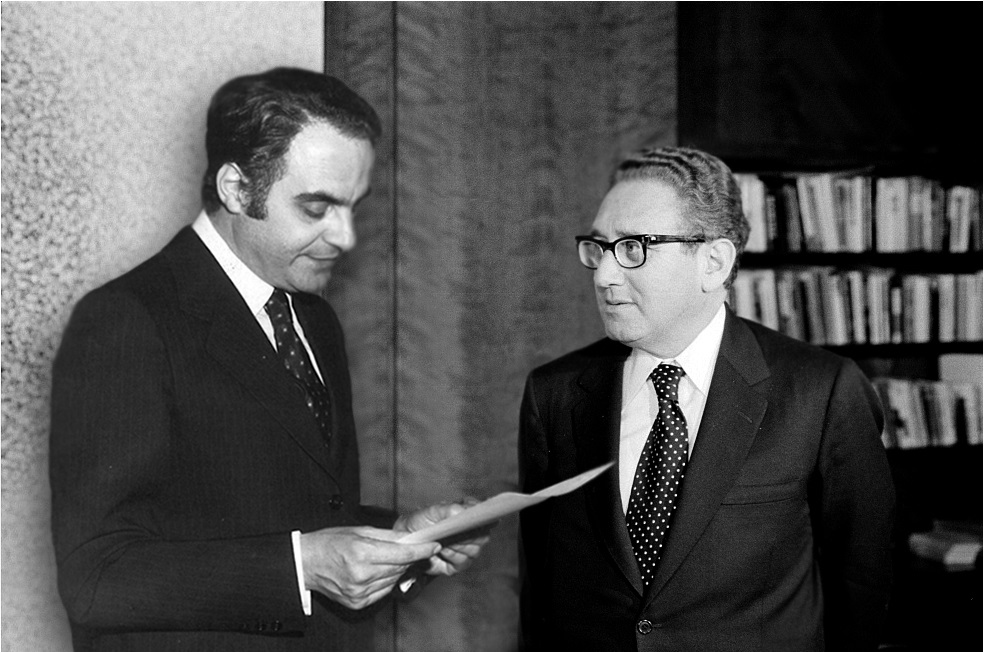
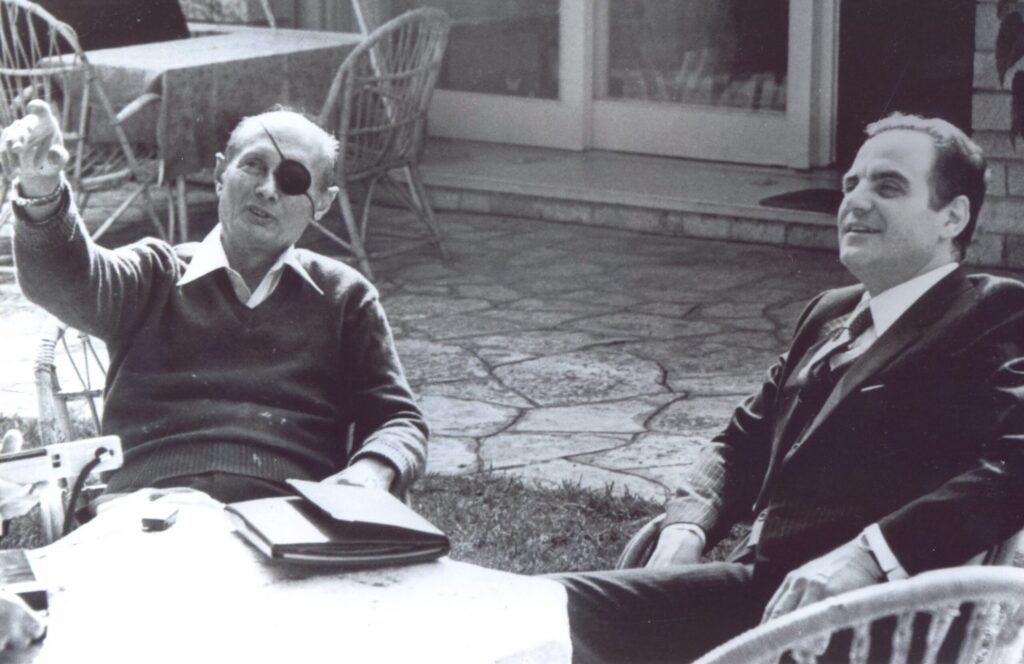
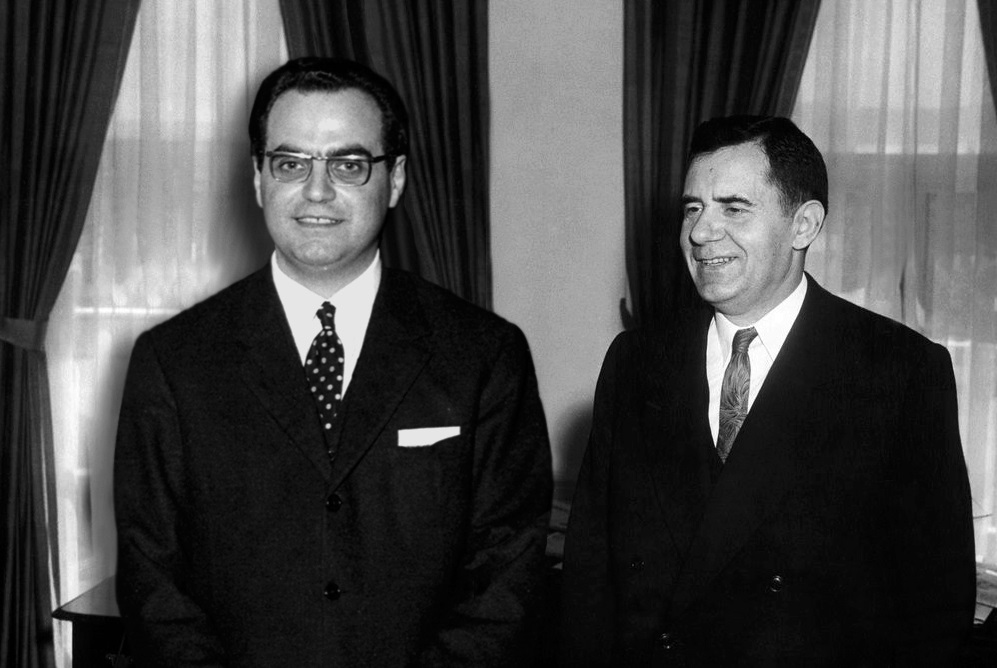
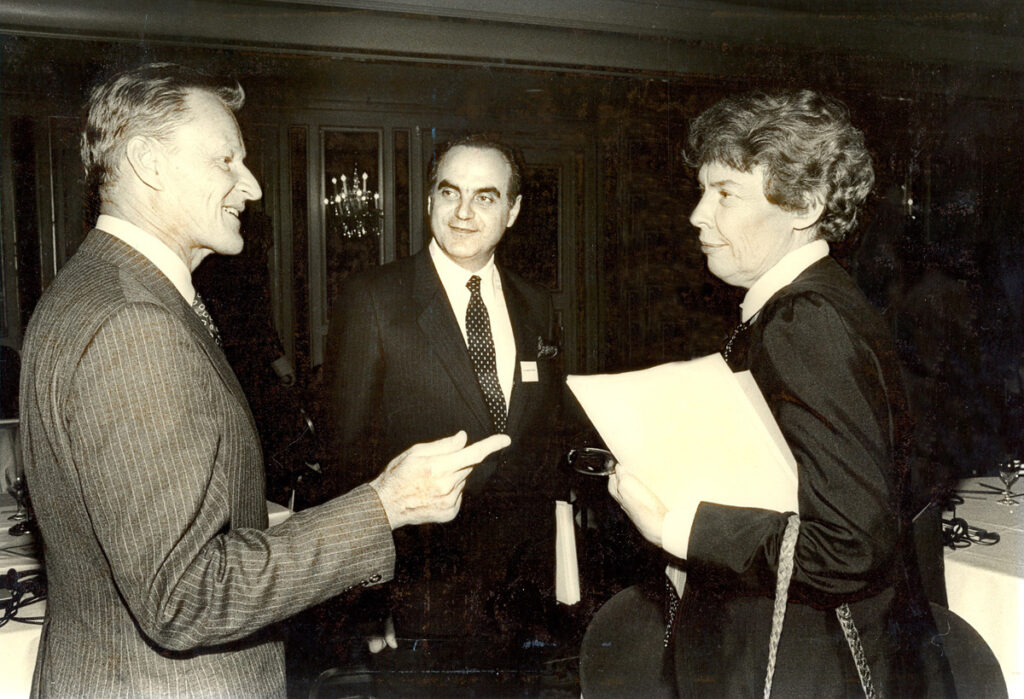
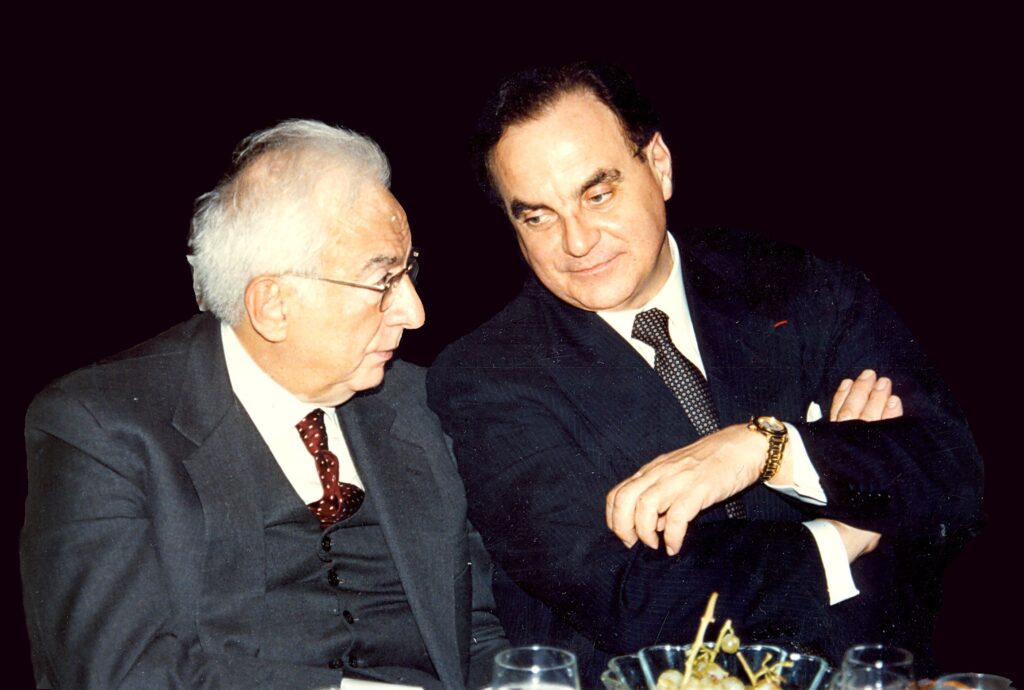
Giancarlo Elia Valori is the author of numerous books, among them: Geopolitics of Space (2006), Anti Semitism, Holocaust, Denial (2007), Mediterranean between Peace and Terrorism (2008), The Future is Already Here (2009), The Way of China (2010), Geopolitics of Water (2012), Geopolitics of Food (2013), “Free Until When? Artificial Intelligence, Fake News and the Future of Democracy” (2020), “Artificial Intelligence between Myth and Reality. Engine of development or imminent danger” (2021), Cyberspace and artificial intelligence between West and East (2023).







